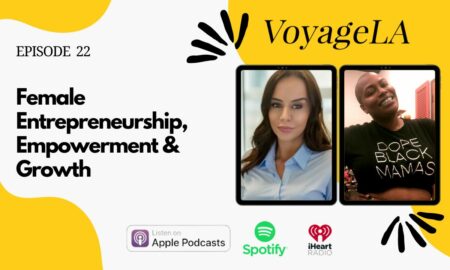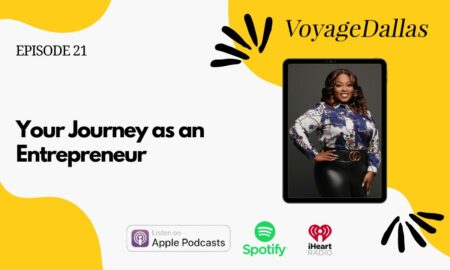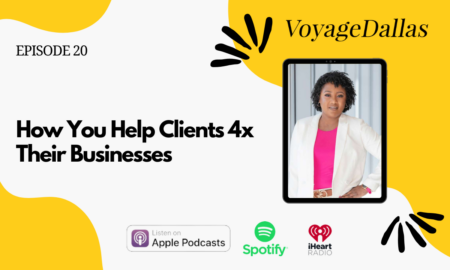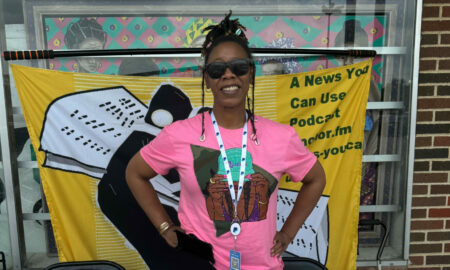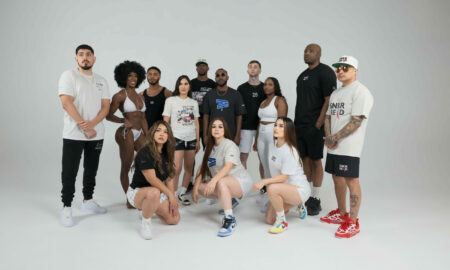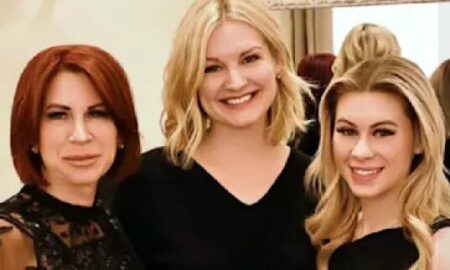

Today we’d like to introduce you to Elisabeth Jordan.
Thanks for sharing your story with us Elisabeth . So, let’s start at the beginning and we can move on from there.
I grew up in Dallas but only knew one side of our city. In 2012, I lost my dream job in the music and entertainment business. I was young but felt old and purposeless: I no longer knew what I wanted to do with my life. It took 6 months without direction, but I finally reached out in prayer to God and asked him, “What are your plans for my life?” Up until that point, I had been doing my best plans for my life, but they had failed me.
Through people, circumstances, and prayer, I started connecting with South Dallas, a part of Dallas in which I had never spent time. I met with leaders of different nonprofits, thinking I would get a traditional nonprofit job. But none came through. Ultimately, Larry James, who ran City Square at the time, invited me to a street corner between a bus stop and a homeless shelter… he went there to shake hands, talk, and pass out water bottles on those hot summer days. I went even though it was out of my comfort zone.
That first day, even though I felt fear, something in me came alive. I had grown up in an area of town where it mattered how you looked on the outside: what you wore, what you drove, where you lived. On the streets, I met a people who had lost a lot, and they shared a transparency and authenticity I was craving.
Over time, as I heard story after story, so many of my stereotypes of the homeless were broken down. I also realized any solutions I thought I brought to the table were premature, and honestly, pretty arrogant. I had never experienced poverty or homelessness, so who was I to bring a solution?
I realized the best thing I could do was to listen and learn… to sit alongside people in the dirt. As I observed what people do to help the homeless, I realized that a gap in the system of care is, simply, a long-term support system for people who are homeless. Someone to call a friend.
There are amazing organizations that help the homeless; there are shelters and programs and services. We work alongside many of them. Our niche is friendship, plain and simple. We go to the streets, over time build trust, love people, take practical steps to help them, and ultimately stay with as they leave the streets and stabilize again. We have a long-term commitment to each person we help. And we are changed in the process too.
Has it been a smooth road?
It has been the bumpiest of bumpy roads. First of all, we are focused on helping the chronically homeless (people with a disabling condition who have been homeless longer than one year or have experienced four bouts of homelessness in three years). That means that most of the people we help have been homeless for an extended period of time, and there are multiple issues to address to help them leave homelessness.
Second, time was an obstacle. Friendship takes a long time to form. It took people in the community a long time to trust me. It was a year or so before people even wanted my help. Then, as I and others began to help people, we would take one step forward and four steps backward. For instance, someone would want to go to rehab, and it would take us seven times to actually get them accepted. Or someone would leave the streets, get a job, and we would be meeting with them regularly, then they would relapse. Along the way, people we loved were murdered on the streets. Two years ago, the City shut down Tent City, which was in our neighborhood and a place many we loved called home. As one of our homeless friends said at the time, “How can you evict people that have already been evicted?”
We didn’t have traditional results to speak of — as a matter of fact, the longer I did the work, the less convinced I was that anyone would ever fully flourish the way I think of flourishing. I had to let go of my expectations for people. I had to leave behind our society’s definition of success. I kept going back to God, asking him, “Are you sure you want me here? Are these really the people you’ve called me to?” Every time, I knew deep in my spirit that I was exactly where I was supposed to be. Fortunately, I had a group of people — volunteers and donors — around me who also believed in the work. They saw past success in terms of getting and holding a job, addiction recovery without relapse, and looked at the dignity of each person. Together, we, at The Human Impact are pushing back our culture’s narrative that to matter you have to produce. We say that every human matter just because they are. We believe and see the image of God in each human we love. And as we love this group of people often forgotten, we experience the immutable love of God for ourselves.
Over time, through this long-term commitment, we have gotten to help people get off of the streets into apartments, help facilitate jobs for people, and support people in their transition. But getting to this point where we see “results” has taken many years.
So let’s switch gears a bit and go into The Human Impact story. Tell us more about the business.
We befriend the homeless and bridge the relational gap to change lives.
BEFRIEND THE HOMELESS: First and foremost, we spend time on the streets in one neighborhood near Fair Park where around 500 homeless people live. Some live in a shelter there; some stay outside.
BRIDGE THE RELATIONAL GAP: Second, we connect volunteers and advocates to the homeless in friendship. We equalize the playing field. We host pop-up barbershops on the streets on Saturdays — we call it “Street-Side Salon” — and there we all eat together, we all serve together, we all sit together, homeless barbers cut hair alongside those that aren’t homeless. We all have something to offer and something to take. We also bring people together over shared meals, picking up our homeless and formerly homeless friends and bringing them to the home of a volunteer or staff member for a meal. Finally, our advocates connect our homeless and formerly homeless friends to jobs, apartments, and other resources.
What sets us apart is that we are committed to people for the long haul. We are in it with our friends even if people never leave the streets. When our friends to leave the streets, we stick with them as friends and continue as a support system. With some of our formerly homeless friends, we meet weekly to discuss all aspects of life — mental, emotional, physical, financial, spiritual.
How do you think the industry will change over the next decade?
I think the focus must be on affordable housing. Many people who become homeless would not become so if housing were more affordable.
In regards to the chronically homeless, most people we have seen who are chronically homeless also need a support system to help them stabilize once they are in housing. In our opinion, people don’t need housing alone, they need a supportive community. The best model we have seen for this is a group outside of Austin called Community-First Village, and our hope is to bring something like this to Dallas in the next 5-10 years. We are starting a partnership with Bonton Farms on a few homes that will house people from their community and our homeless friends.
Contact Info:
- Address: The Human Impact
9540 Garland Rd., Ste 381-398
Dallas, TX 75218 - Website: www.thehumanimpact.org
- Email: info@thehumanimpact.org
- Instagram: https://www.instagram.com/thehumanimpact/
- Facebook: https://www.facebook.com/thehumanimpact/
- Twitter: https://www.twitter.com/thehumanimpact/





Image Credit:
Christena Dowsett ChristenaDowsettPhoto.Com
Getting in touch: VoyageDallas is built on recommendations from the community; it’s how we uncover hidden gems, so if you know someone who deserves recognition please let us know here.












